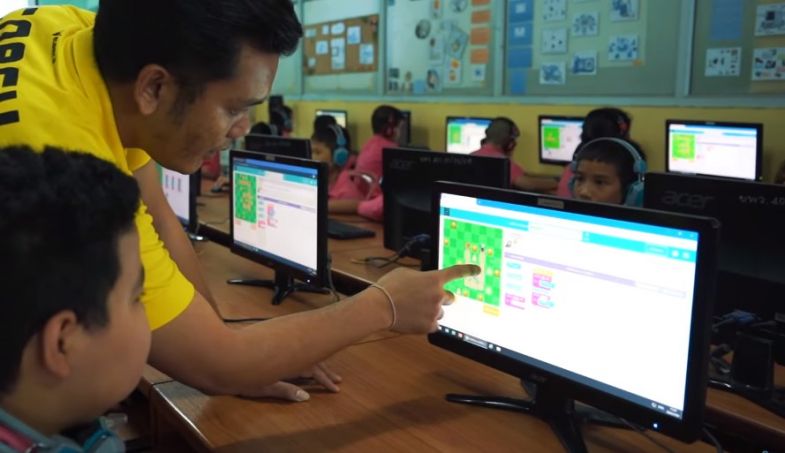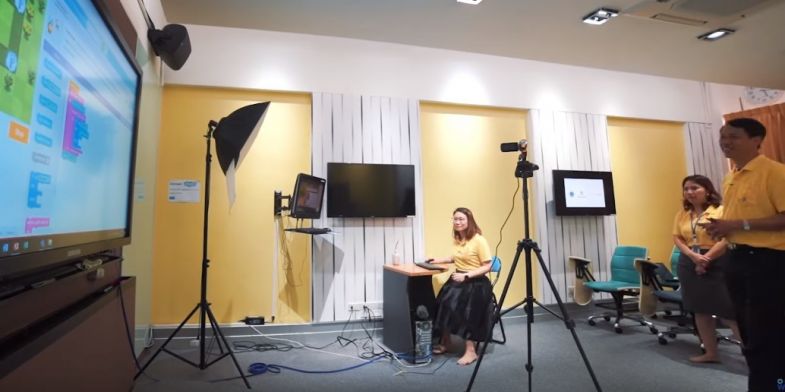
It is generally accepted that the aim of primary education is to help children to understand the world around them, giving them a foundation for lifelong learning. To meet this aim; governments, schools and teachers help students to develop hard skills such as reading, writing, and arithmetic; as well as soft skills like confidence, teamwork and critical thinking.
Many primary schools around the world have begun to include computing science in their curricula. They recognize the important role which technology plays, not only in the wider world, but also in the lives of young children both in and out of school. The inclusion of computing science in a curriculum also develops soft skills like computational thinking, and brings together other elements of the curriculum through projects and activities.
However, it can often be difficult for teachers to lead classes on computing science topics; especially as these skills were not a part of their own specialties. To solve this problem among Thai primary school teachers, the Computational Thinking Research Group, Institute for Innovative Learning, Mahidol University, has developed an online-learning curriculum to help primary teachers adapt to teaching computing science.
This curriculum is a part of the national project Coding Thailand, initiated by the Digital Economy Promotion Agency (DEPA), Ministry of Digital Economy in Society; in cooperation with Code.org, a non-profit organization which provides online training platforms for computer science teachers; and Microsoft Thailand.

Computational Thinking is an approach to problem solving which can be transferred to a computer. This provides a vital link between the creativity and flexibility of the human brain, and the speed and efficiency of computational power, and is therefore a key skill in the digital era. It is not enough to simply have the hard skills for coding: telling a computer what to do; but we also need the mindset of Computational Thinking, so that we can explain the process in a way that the computer will understand.
This new curriculum understands this, and so not only does it aim to teach the primary teachers how to facilitate their students’ learning coding, but it also aims to promote computational thinking in the primary teachers, so that they can take a holistic approach to the process.
Teachers take part in the online course by using Microsoft Teams as a platform to learn, share and communicate with instructors and peers. There are two main components to the platform: the self-learning component, which includes practice in coding through selected lessons from Code.org as well as unplugged activities in the form of video clips and documents suitable for teaching primary students; and face-to-face discussion and sharing of one hour per week, via Microsoft Teams conferences. To complete the learning goals, the participants will cover both components for nine weeks.
By helping to integrate Computational Thinking into Thai primary education, the Institute for Innovative Learning is supporting the next generation of programmers, scientists, entrepreneurs, and teachers, to overcome the challenges they face in the real world, as well as the digital space.









